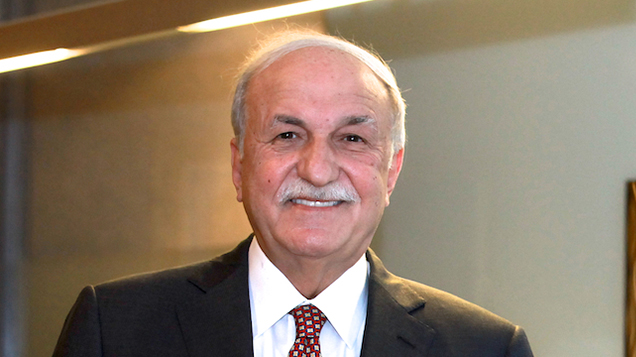
Turkey
Hüsnü Özyeğin
- Chair, FIBA Holding (Financial Services)
Born İzmir, Turkey, 1944. Bachelors, Oregon State University (1967); MBA, Harvard Business School (1969).
“[W]e value human relations a lot. We want to make sure that our top managers treat their subordinates as good as their bosses . . . We evaluate their team spirit, how they fit with the team.”
Summary
Hüsnü Özyeğin, the founder and owner of Turkey-based FIBA and a self-made billionaire, discusses in two interviews how he built one of the country’s largest financial services and banking groups. After an American education at the Harvard Business School, where he was the second Turkish MBA student in the school’s history, Özyeğin relates the remarkable story of how he became a general manager of a bank owned by a friend at the age of 32. He explains how he built a corporate culture at that bank, hiring top management and graduates from leading universities. He subsequently turned round a larger and loss-making bank, during the deeply challenging conditions of high inflation and military governments. In a second interview, recorded on video, Hüsnü begins with explaining how he established his own bank, the Finansbank, in 1987. This bank, which was focused on the corporate sector, expanded rapidly, both in Tukey and in Europe. Finansbank became one of Turkey's largest private banks, with 200 branches in 10 countries. He sold his interest in the bank in 2006, but his FIBA Group continued as multi-billion investment holding company with diversified interests. Özyeğin also explores his commitment to expanding educational opportunities for women. After learning that only 5 per cent of girls in an outlying province continued in education after primary school, his charitable foundation built twenty-five female dormitories next to high schools in large cities, enabling a whole new cohort of young women to be educated to a higher level than in the past.
Video Clips by Topic
Corporate Culture
Hüsnü Özyeğin, the founder of one of Turkey’s largest financial services groups, expresses the view that corporate culture is key in banking, and explains how he delegated responsibility to his future successor to hire new staff.
Regulation
Hüsnü Özyeğin, chair of the Turkish financial services company Fiba Holding, describes how the government's policies contributed to the financial crisis in Turkey of 1994.
Keywords:
Turkey, Government Regulation
Innovation
Hüsnü Özyeğin explains how he tapped into his years of developing strong client relationships in order to strengthen and expand his bank.
Responding to Crises
Hüsnü Özyeğin, chair of the Turkish financial services company, Fiba Holding, explains how his bank's decision not to invest heavily in Turkish Lira protected it during the 1994 financial crisis.
Additional Resources
- Finansbank 2006 [HBS Case]
- Finansbank 2006, Spreadsheet Supplement [HBS Case]
- Hüsnü Özyeğin, MBA 1969, January 1, 2011
- Hüsnü Özyeğin Türk işadamlarına kendisini anlattı, Youtube, June 7, 2013
- İŞ' te Hayat Hüsnü Özyeğin, Youtube, April 3, 2013
- Terakkili Öğrencilerin Hüsnü Özyeğin ile Röportajı, Youtube, April 19, 2013
- Para Sohbetleri- Hüsnü Özyeğin, Youtube, July 17, 2012
- “Husnu Ozyegin, Fiba Group,” Financial Times, May 26, 2013
- “A New Breed of Billionaire,” New York Times, December 14, 2007
- Burhan Karaçam, Orasi Yapi Kredi, fark oradaydi, 1987–1999. Yapi Kredi Yayinlari, 2006
- Yapi Kredi Sermet Çifter Arastirma Kütüphanesi bülteni. Yapi Kredi Kültür Sanat Yayincilik, 2001–
- Sadi Abaç, Bir bankacinin anilari: Yapi Kredi’de 36 yilim, 1944–1980. IBAR Yayinlari, 1993
- Kevin Miller, "Come Ready, Go Boldy," Oregon Stater, Fall 2012.
- Video file of part of this interview available at Baker Library Historical Collections, histcollref+hbs.edu. Harvard ID holders can access the full video above.
Interview Citation Format
"Interview with Hüsnü Özyeğin, interviewed by Felix Oberholzer-Gee, March 5, 2014 and September 16, 2014, Creating Emerging Markets Project, Baker Library Historical Collections, Harvard Business School, http://www.hbs.edu/creating-emerging-markets/."
